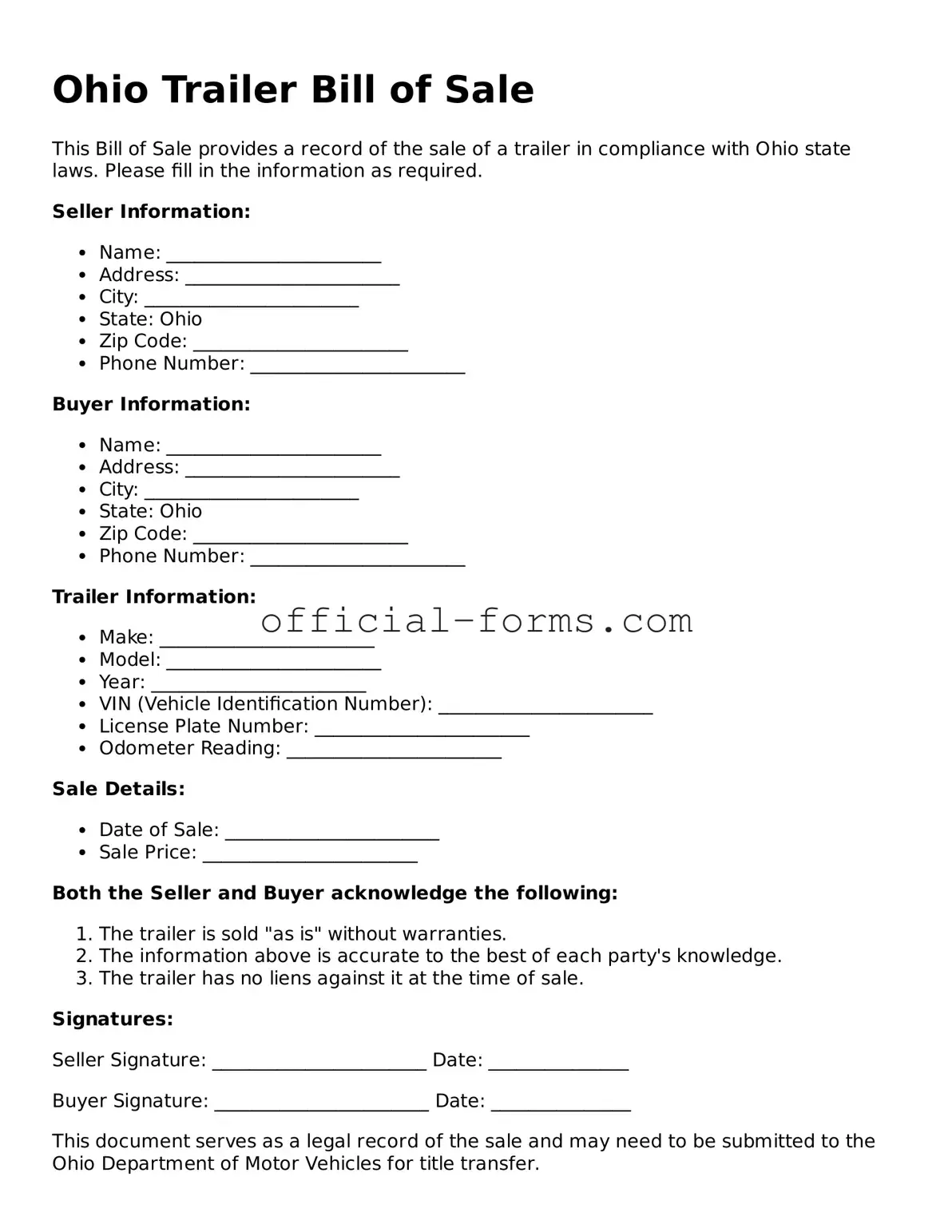When it comes to completing the Ohio Trailer Bill of Sale form, many individuals overlook crucial details that can lead to complications down the line. One common mistake is failing to provide accurate vehicle identification numbers (VIN). The VIN is essential for identifying the trailer, and any errors can result in registration issues or even disputes over ownership.
Another frequent oversight is not including the correct sale price. This figure is important not just for the transaction itself, but also for tax purposes. If the sale price is inaccurately reported, it could lead to complications with the Ohio Bureau of Motor Vehicles (BMV) and potential penalties.
People often forget to include the date of sale, which is a critical component of the document. Without this date, it becomes difficult to establish when the transfer of ownership occurred, potentially leading to legal ambiguities. It’s crucial to ensure that this detail is not overlooked.
Additionally, many individuals neglect to sign the form. A signature is required to validate the transaction. Without it, the Bill of Sale may not be considered legally binding, leaving both parties vulnerable to disputes.
Another mistake involves not providing the buyer's information in full. This includes the buyer's name, address, and contact details. Omitting any of this information can create confusion and make it difficult to reach the buyer if necessary.
People sometimes fail to indicate whether the sale is “as-is.” This phrase clarifies that the buyer accepts the trailer in its current condition, without any warranties or guarantees. Not including this information can lead to misunderstandings regarding the condition of the trailer post-sale.
Some individuals mistakenly assume that the Bill of Sale does not need to be notarized. While notarization is not always required, having a notary public witness the signatures can add an extra layer of protection for both parties involved. It’s wise to check the specific requirements for your situation.
Another common error is not keeping a copy of the completed Bill of Sale. It’s vital for both the buyer and seller to retain a copy for their records. This document serves as proof of the transaction and can be important for future reference, especially if any disputes arise.
People also often forget to double-check for typos or incorrect information. Even minor errors can lead to significant issues later on. Taking the time to review the form thoroughly before submission can save a lot of headaches down the road.
Finally, many individuals do not familiarize themselves with the specific requirements for their county or municipality. Each area may have its own regulations regarding trailer sales, and failing to comply can result in delays or issues with registration. It’s crucial to do your homework to ensure everything is in order.

